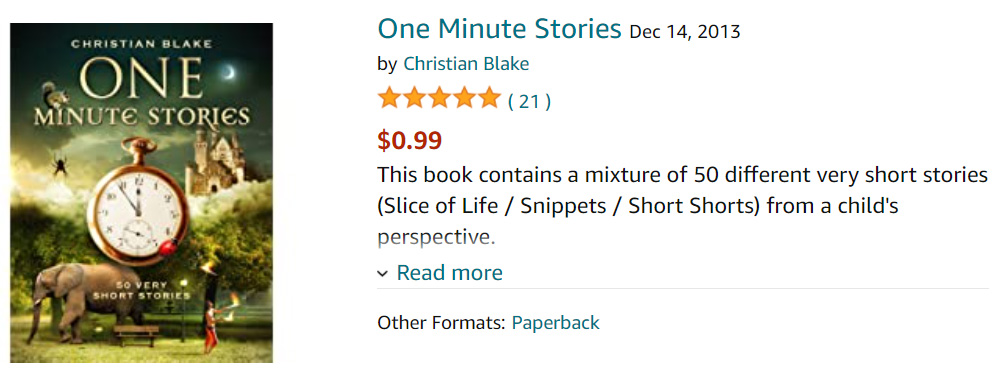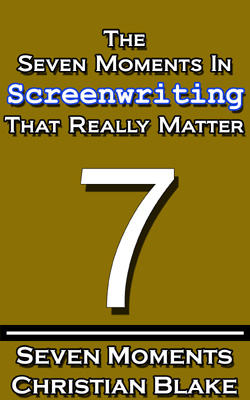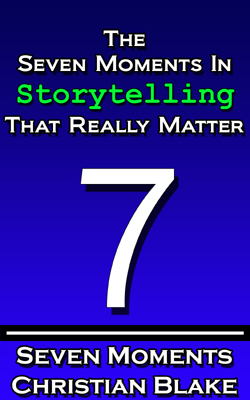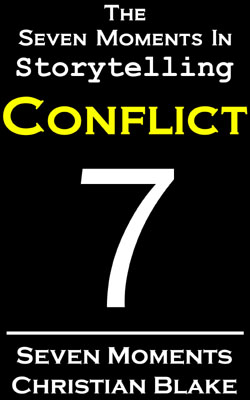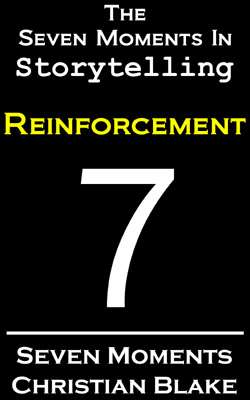Christian Blake
Plosives
![]()
(scroll down for the essay about plosives)
The Power of Plosives video (forgive the weak lighting on Cheryl.....rookie mistake!)
If you've come to this page, then you must be curious about plosives. Or maybe you've been told you don't have an ear for dialogue? Fear not my fellow writer, for you are about to learn a nifty trick to enrich your words.
If you haven't heard of plosives, you're not alone. Few people know what they are. Outside of a dictionary, only one book has ever mentioned plosives that I know of, and it was a book about giving speeches. The writer gave a short, 2-page explanation on what plosives were and how they could be used to improve public speaking. If I ever remember the name of the book, I'll post it.
I've used plosives to help improve dialogue for close to ten years now. Here is what I've learned:
Say the word "Power" out loud a couple of times. Can you hear the plosive in the "p"? That pocket of air that you create when you voice this word is called a "plosive". If you've ever wondered why a particular word sounds better than another, it's because plosives are pleasing to the ear, and the more plosives a word has, the more powerful a punch it packs.
There are seven letters in the alphabet that can create plosives:
"B" as in Brain.
"C" as in Coward.
"K" as in Kill.
"P" as in Power.
"Q" as in Quill.
"T" as in Trance.
"X" as in Vixen.
Although not technically a plosive, these two are close enough to give your dialogue some extra bite:
"D" as in Dead.
"G" as in Gag.
So, if you've used the word "thief" in your dialogue, or even in your fiction, a much stronger word would be "bandit". "Slut" is stronger than "whore", "blade" is stronger than "knife", "tulip" is stronger than "flower" or even "rose", etc.
"Tulip" is not only a great example of a plosive-packed word, but it also paints a distinct image to the listener/reader, which makes it a valuable tool for any word smith.
Let's look at a few examples of dialogue, starting with one of the strongest quotes I've ever heard on the big screen:
"A wealthy scoundrel seduced and betrayed me." - Ronin.
Not only is this sentence thick with plosives, the words themselves tell an entire story on their own.
In Once Upon A Time In The West, Frank asks Harmonica a few times throughout the movie what his real name is, and Charles Bronson only replies with strong, plosive thick names of dead men:
"Dave Jenkins"
"Calder Benson"
"Jim Cooper"
"Jack YoungBlood"
More examples:
"Dead broad off the table!" - Shrek.
"Touch that gun I'll burn you down!" "Skin that smoke wagon and see what happens!" "I'm getting tired of your gas now jerk that pistol and go to work!" "I beg to differ sir, we started a game we never got to finish. Play for blood, remember?" - all from Tombstone; a movie with countless kick-ass quotes.
"Do I detect a look of disapproval in your eye? Tough beans buddy cuz that's the way it's gonna be!" - Breakfast At Tiffany's.
"Those marks on your dear miss Lucy's neck were made by something unspeakable out there, dead but not dead, that stalks us for some dread purpose I do not yet comprehend. To live it feeds on Lucy's precious blood. It is a beast, a monster." - Dracula.
Yet another movie that is thick with plosive-rich dialogue is A Streetcar Named Desire.
Ever wonder why some people can completely hold your attention when they're chatting with you? Or perhaps they can captivate the attention of an entire audience? Outside of a charming personality, more than likely they are using plosive-heavy dialogue.
Strong character names:
"Porter" - Payback
"Snake Plissken" - Escape From New York
"Trinity" - Matrix
"The Dread Pirate Roberts" - The Princess Bride
If you want to find plosive-heavy names, get a baby name book. Most books have 50,000 names, give or take, and you can pick one up for less than ten bucks. Then go through the book and highlight all the best plosive-packed names. And from there you can print yourself a master list. You'll be surprised at how many 2 and 3 plosive names there are.
For my stories, I give the strong characters equally strong plosive names, and I give the weaker characters names without plosives. In my script The Lucky Yankee, the main characters name is Christian. His sidekick - a vicious, heartbreaking, six-foot tall blond, is named Brittany. The bad guy is named Kurt. The rest of the characters in The Lucky Yankee have single or zero-plosive names.
Say the following sentences out loud:
We got in a fist fight, and I won. (five plosives, nine words)
I beat the crap out of him. (five plosives, seven words)
I split his head open with a baseball bat. (eight plosives, nine words)
I cracked his skull open with Pete's baseball bat.(eleven plosives, nine words).
Read the following passage out loud and then take a look at the plosive breakdown below:
"After I hit that cocksucker six times in the back of the head with Pete's baseball bat, his
skull just split right open and spilled out all those pretty memories right there across the
sidewalk, right smack in front of Blake's bar-b-queue bizarre and Bishop Crispin and
an entire squad of Troop Thirteen's girl scouts that just happened to be out Christmas
Caroling."
"After I hit that cocksucker six times in the back of the head with Pete's baseball bat, his
skull just split right open and spilled out all those pretty memories right there across the
sidewalk, right smack in front of Blake's bar-b-queue bizarre and Bishop Crispin and
an entire squad of Troop Thirteen's girl scouts that just happened to be out Christmas
Caroling". (sixty-five plosives, sixty-three words)
Get the picture? Plosives work. Use them wisely and they will strengthen your writing.
The above essay is included in Christian Blake's book: The Seven Moments In Screenwriting That Really Matter. His book teaches about the seven most important moments in storytelling, specifically relating to screenwriting. Withou the seven moments, your story will fail. Use them wisely!
Christian Blake's books are sold exclusively through Kindle.
|
|

